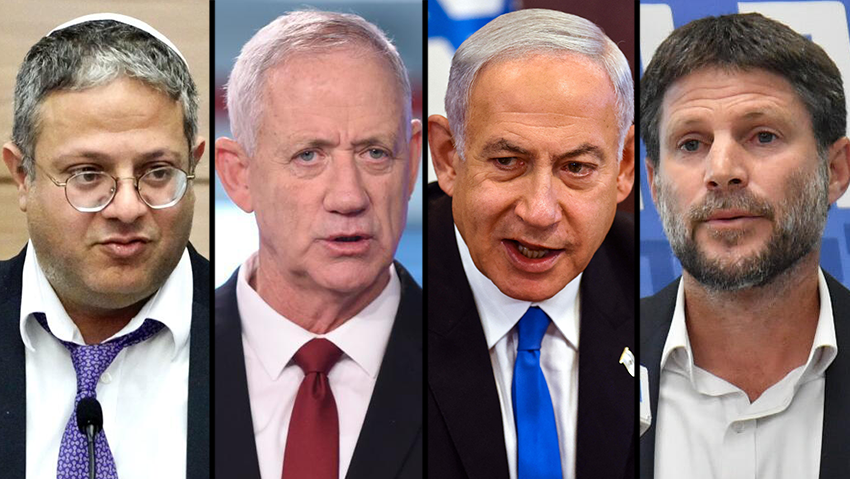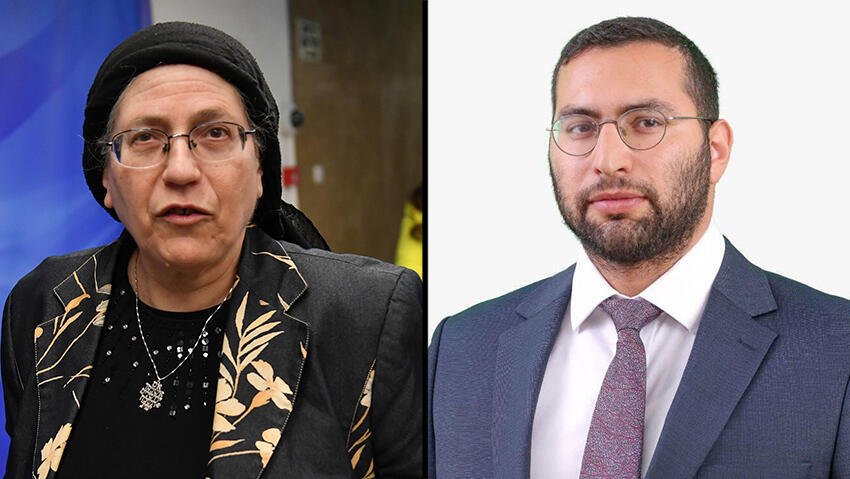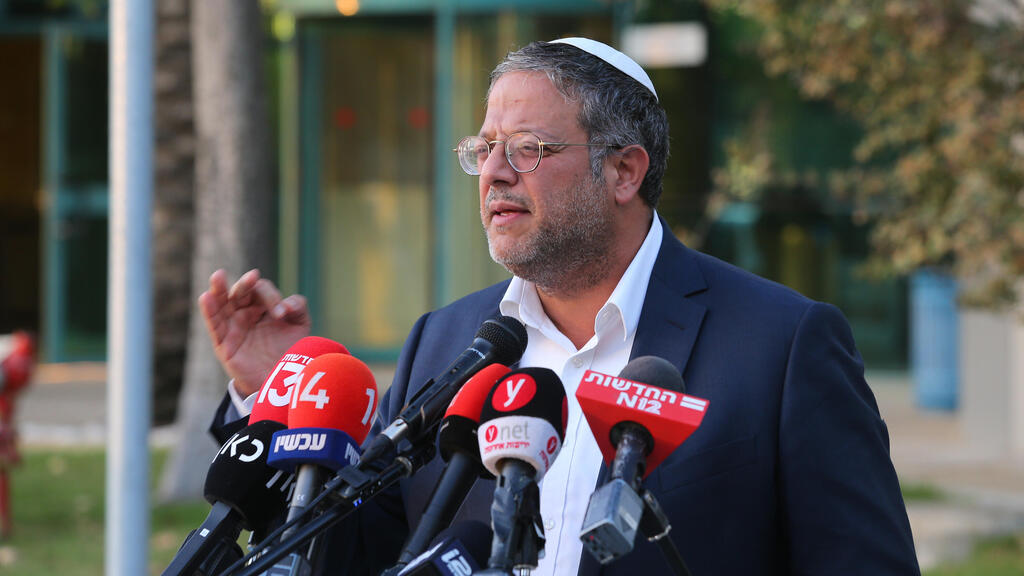Israel’s hostage release deal with Hamas, which was approved overnight Wednesday, received significant backing from representatives of the Religious Zionist party, which defined the emerging deal as "bad", but eventually voted in favor after leaving for consultation.
More stories:
The party’s leader, Finance Minister Bezalel Smotrich, and Settlements and National Missions Minister Orit Strock expressed concern that the deal might lead to the loss of military initiative, and that following it the war’s original goals may change.
3 View gallery


Itamar Ben-Gvir, Benny Gantz, Benjamin Netanyahu, Bezalel Smotrich
(Photo: Yoav Dudkevitch, AFP, Amit Shabi, Kobi Koanx)
The government received a briefing from senior security officials, Mossad, Shin Bet, and the IDF, who worked in coordination and convinced members that they knew how to handle such a deal in the best manner. The three, Mossad chief David Barnea, Shin Bet chief Ronen Bar, and IDF Chief of Staff Lt. Gen. Herzi Halevi, explained that this was the only possible and right deal at this moment, and recommended accepting it.
According to them, the deal will not harm the fighting. Prime Minister Benjamin Netanyahu also committed to the ministers that as long as he continues to hold his position, the war’s goals will remain as they are.
Strock, who strongly opposed the agreement during the discussion - explained her support for it on her X (formerly Twitter) account: "I voted in favor even though I really didn't plan to. The deal for the release of Israeli captives is one of the war’s goals – I concluded this in light of detailed reviews, questions answered thoroughly, and an examination of the list of terrorists to be released. The soldiers, who achieved this through battle, will fight even harder following the deal. The whole government, from end to end, is determined to reach victory."
Those who further persuaded the party’s ministers were Defense Minister Yoav Gallant and Minister Benny Gantz, who told them during the discussion that the war cabinet is determined to continue working for the ultimate goals of the war - namely, neutralizing Hamas’ capabilities in the Gaza Strip.
Smotrich and his ministers raised concerns about possible manipulations by Hamas leader Yahya Sinwar and a possible diminishing of military readiness, and received answers to each of their questions. After that, they went for a consultation and voted in favor 10 minutes later.
Likewise, Likud ministers expressed support for the deal, and explained that the government is morally obligated to bring the captives back home. Regional Cooperation Minister David Amsalem noted, "People were not abducted abroad. They were abducted here, in Israel, from their beds. A huge failure took place here. Therefore, we must bring them back."
Some ministers even tried to appeal to Otzma Yehudit party leader and National Security Minister Itamar Ben-Gvir, and asked him to vote in favor. Ministers from Ben-Gvir’s party, Heritage Minister Amichai Eliyahu and Negev, Galilee, and National Resilience Minister Yitzhak Wasserlauf, left the discussion before its conclusion and left a note stating their opposition to the deal.
Ultimately, Ben-Gvir himself wasn’t persuaded and voted against it. Culture and Sports Minister Miki Zohar wondered why there was a need to issue statements against the deal even before the government’s meeting and to hold preliminary party meetings on the matter. Ben-Gvir responded, "We’ve seen in the media everything we saw here beforehand, so it's very good that we had a meeting."
Intelligence Minister Gila Gamliel intervened and said that it was important for the deal to pass unanimously in order to convey a message of unity, to which Ben-Gvir answered, "But we’re not united. This decision will cause us great harm for generations."
"It's not easy to change one's opinion in such a way," said one Religious Zionist minister. "These are days that pose the most difficult dilemmas Israel’s had since its establishment. Nevertheless, we were convinced that this is the right thing to do, so we voted in favor."
Prior to the voting, Smotrich and Gantz had a disagreement during the discussion. Smotrich expressed concern that Hamas would exploit the days of the truce beyond what was agreed and would announce that it found more Israeli captives. Gantz responded, "What kind of question is that? We’re telling you this is the deal. Do you trust us more than Sinwar?"




